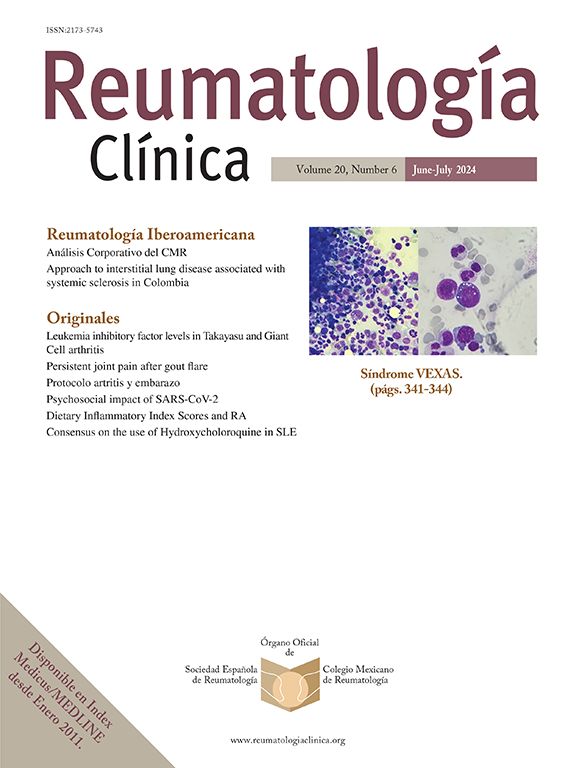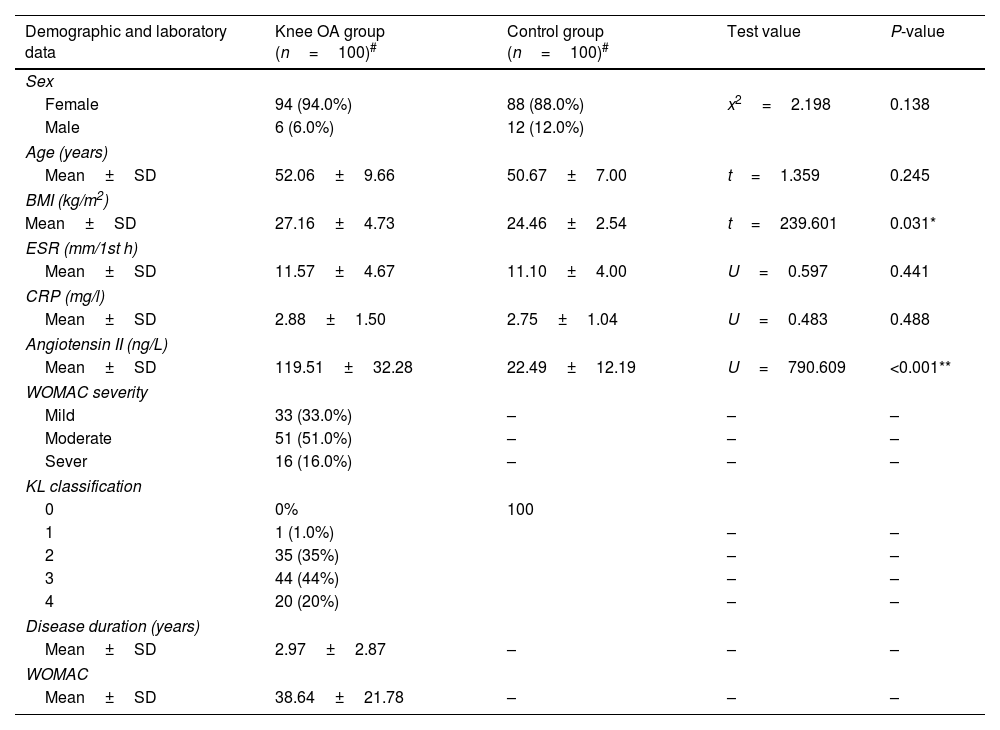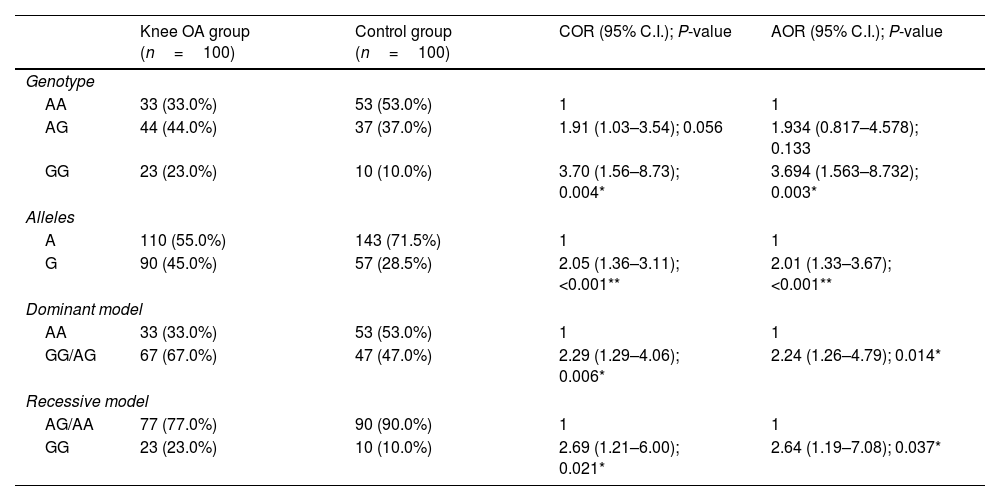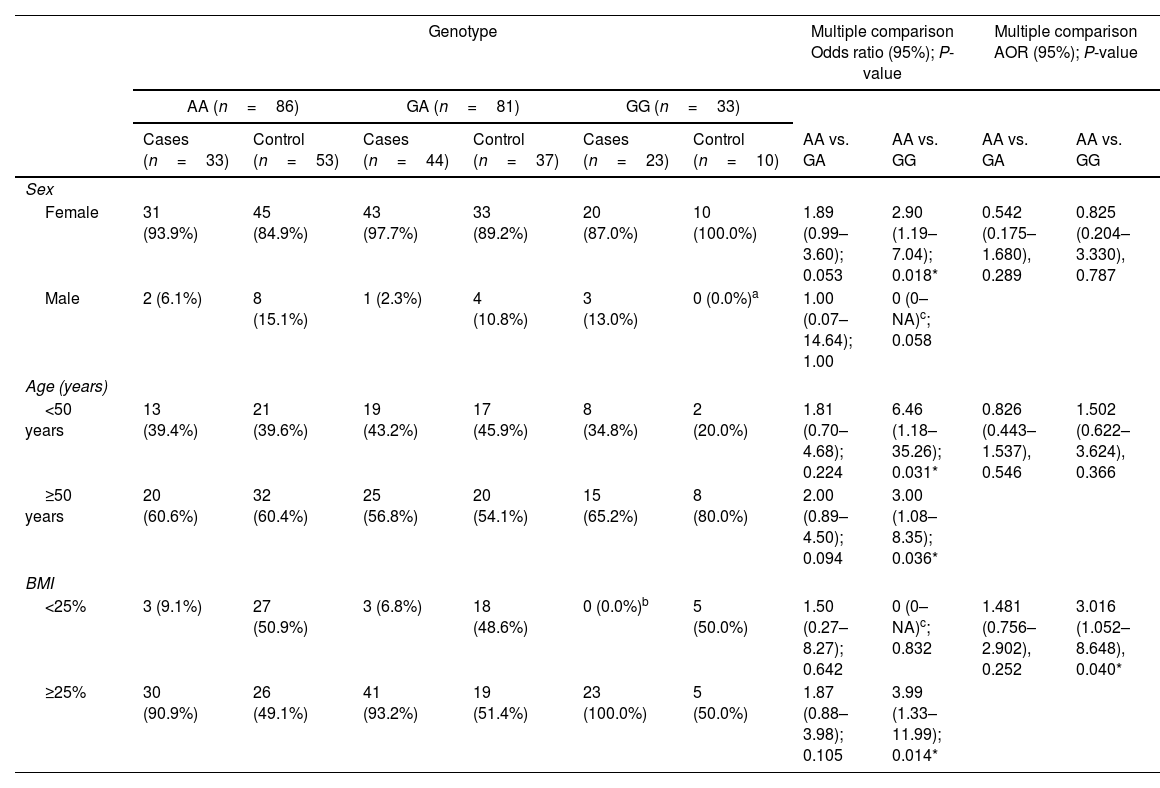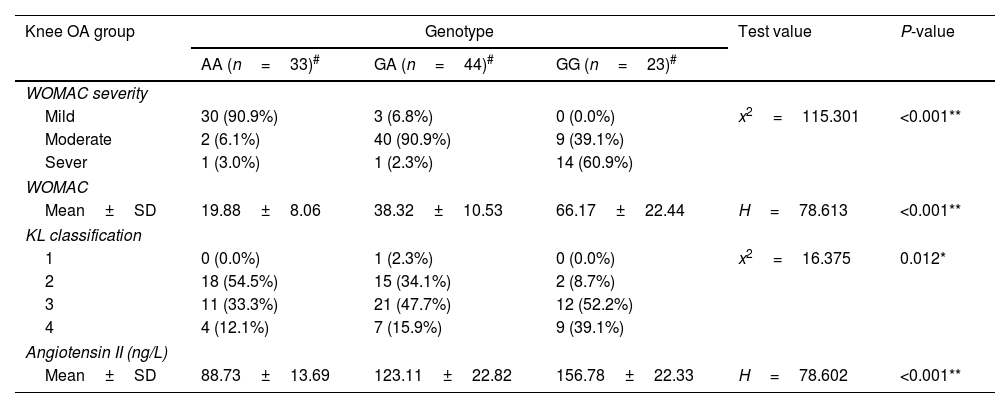Osteoarthritis (OA) is a complex multifactorial disease. The association of knee OA risk with ACE gene rs4343 polymorphism, gene environment synergistic effect, and angiotensin II serum level has not been previously examined. Therefore, we investigate the ACE gene rs4343 polymorphism in knee OA, and its association with severity of knee OA, and angiotensin II serum level.
MethodsUsing a case–control design, we recruited 200 subjects (100 cases and 100 controls) and all were subjected to genotyping of rs4343 SNP by real-time polymerase chain reaction and assay of serum angiotensin II level by ELISA.
ResultsG containing genotypes (AG and GG) and G allele frequencies of the ACE rs4343 polymorphism were significantly higher in the case group than that in the control group. There was significant association between ACE rs4343 genotypes and risk of knee OA under the following genetic inheritance models: GG vs. AA (P=0.003), AA vs. GG/AG (P=0.014), AG/AA vs. GG (P=0.037), and G vs. A (P<0.001). Stratified analyses showed ACE rs4343 polymorphism was evidently associated with a significantly increased risk of knee OA among those had BMI≥25% (adjusted OR=3.016; 95% CI 1.052–8.648; P=0.040). Additionally, knee OA patients with GG genotype had greater knee specific WOMAC index, Kellgren score, and serum angiotensin II level than those with AA or GA genotypes.
ConclusionThe investigated polymorphism in the ACE gene rs4343 may reflect the risk and severity of knee OA in the Egyptian population, particularly with the GG genotype. The interaction between ACE gene rs4343 polymorphism and obesity further increased the risk of knee OA. Moreover, the higher angiotensin II level may be involved in the pathogenesis of knee OA.
La osteoartritis (OA) es una enfermedad multifactorial compleja. La asociación del riesgo de OA de rodilla con el polimorfismo rs4343 del gen ACE, el efecto sinérgico del entorno genético y el nivel sérico de angiotensina II no se ha examinado previamente. Por lo tanto, investigamos el polimorfismo rs4343 del gen ACE en la OA de rodilla y su asociación con la gravedad del OA de rodilla y el nivel sérico de angiotensina II.
MétodosUtilizando un diseño de casos y controles, reclutamos a 200 sujetos (100 casos y 100 controles) y todos fueron sometidos a genotipado del SNP rs4343 mediante reacción en cadena de la polimerasa en tiempo real y análisis del nivel de angiotensina II sérica mediante ELISA.
ResultadosLos genotipos que contienen G (AG y GG) y las frecuencias del alelo G del polimorfismo ACE rs4343 fueron significativamente mayores en el grupo de casos que en el grupo de control. Hubo una asociación significativa entre los genotipos ACE rs4343 y el riesgo de OA de rodilla en los siguientes modelos de herencia genética: GG frente a AA (p=0,003), AA frente a GG/AG (p=0,014), AG/AA frente a GG (p=0,037) y G frente a A (p<0,001). Los análisis estratificados mostraron que el polimorfismo ACE rs4343 se asoció evidentemente con un riesgo significativamente mayor de OA de rodilla entre aquellos que tenían un IMC≥25%. Además, los pacientes con OA de rodilla con genotipo GG tenían un índice WOMAC específico de rodilla, una puntuación de Kellgren y un nivel de angiotensina II sérica mayores que aquellos con genotipos AA o GA.
ConclusiónEl polimorfismo investigado en el gen ACE rs4343 puede reflejar el riesgo y la gravedad de la OA de rodilla en la población egipcia, particularmente con el genotipo GG. La interacción entre el polimorfismo rs4343 del gen ACE y la obesidad aumentó aún más el riesgo de OA de rodilla. Además, el nivel más alto de angiotensina II puede estar involucrado en la patogénesis de la OA de rodilla.

